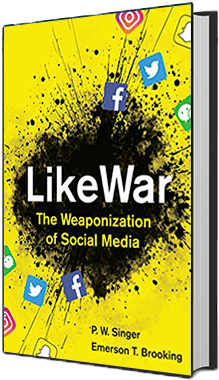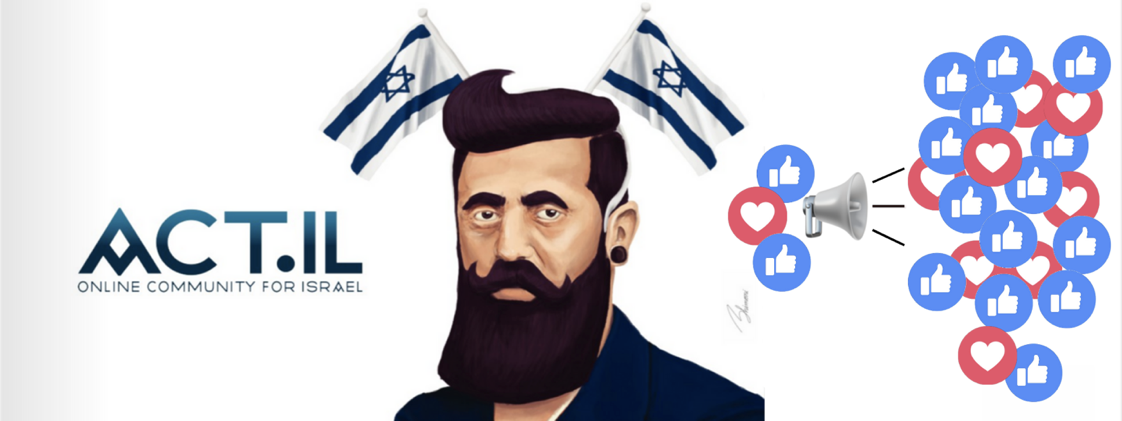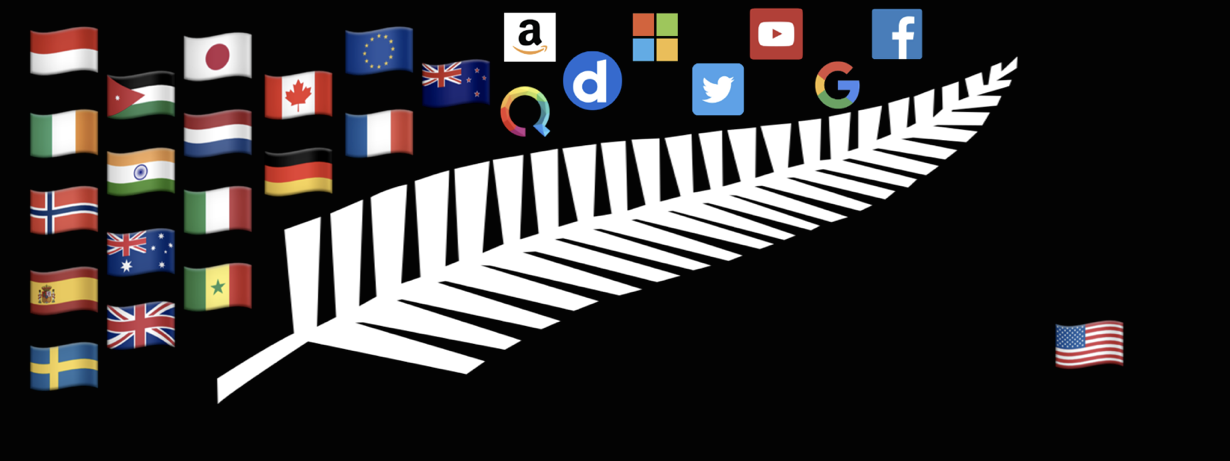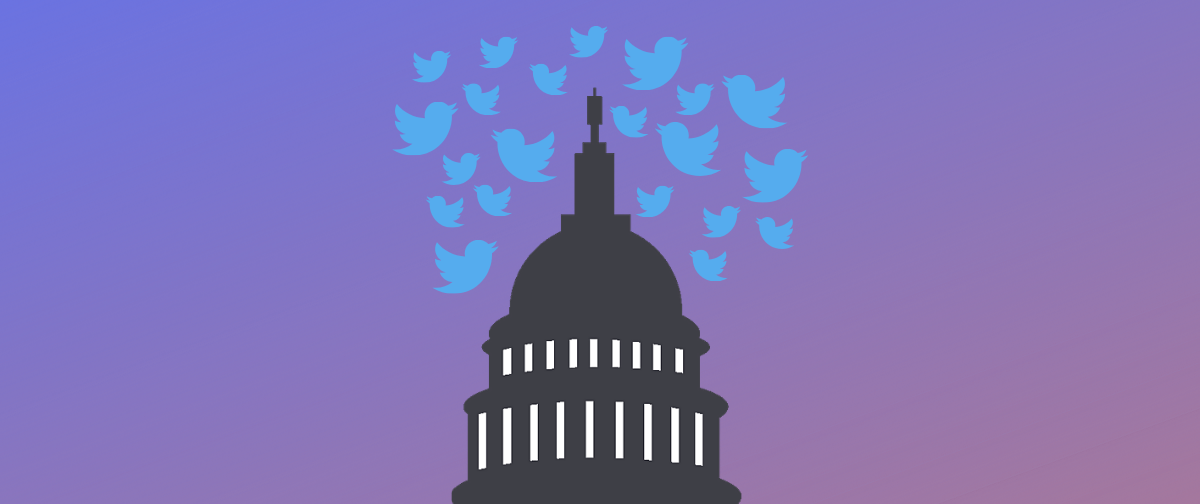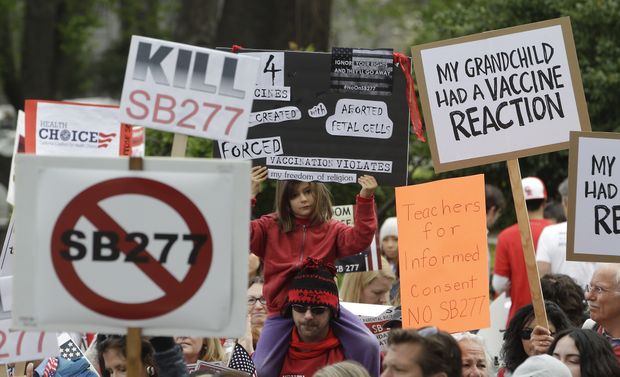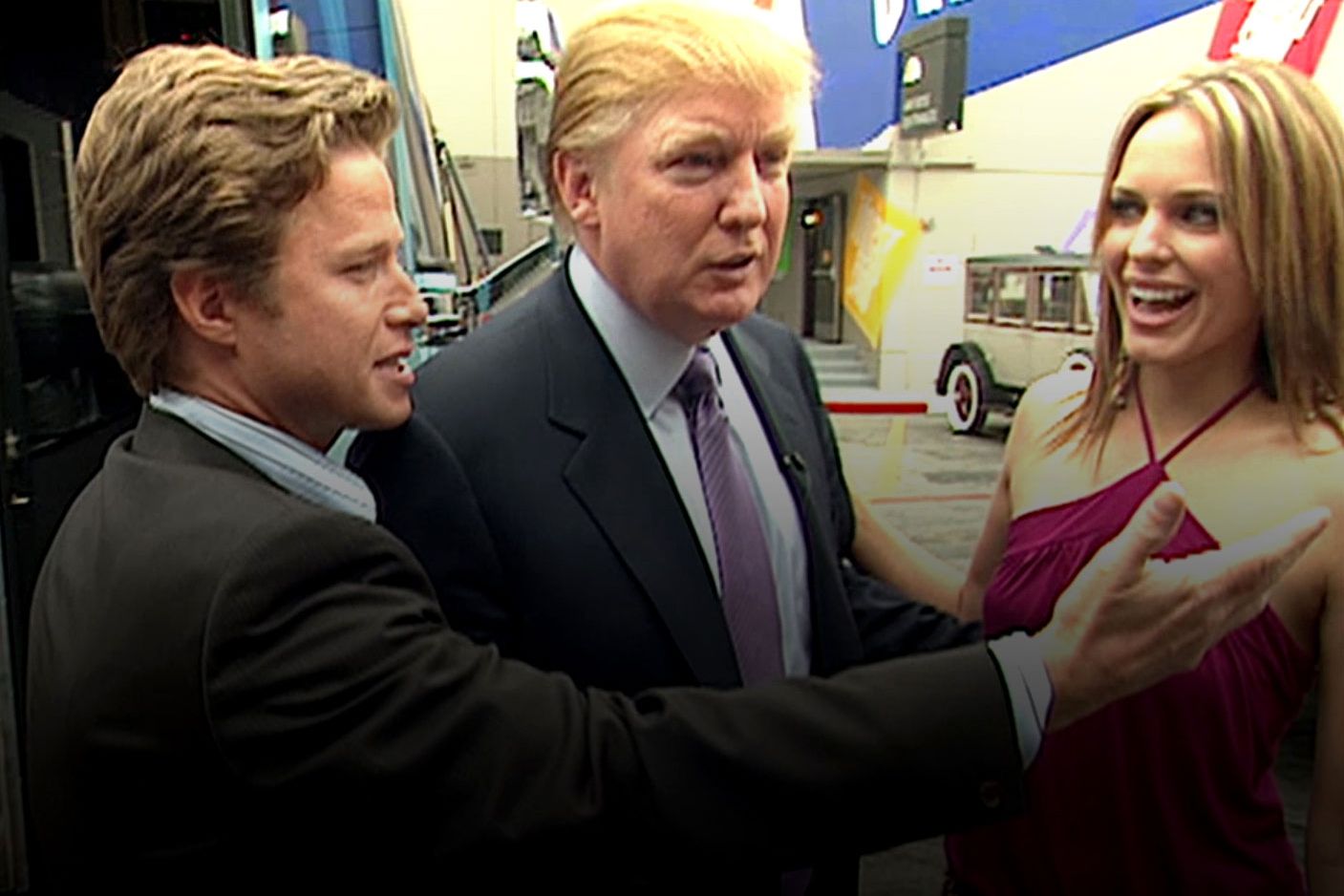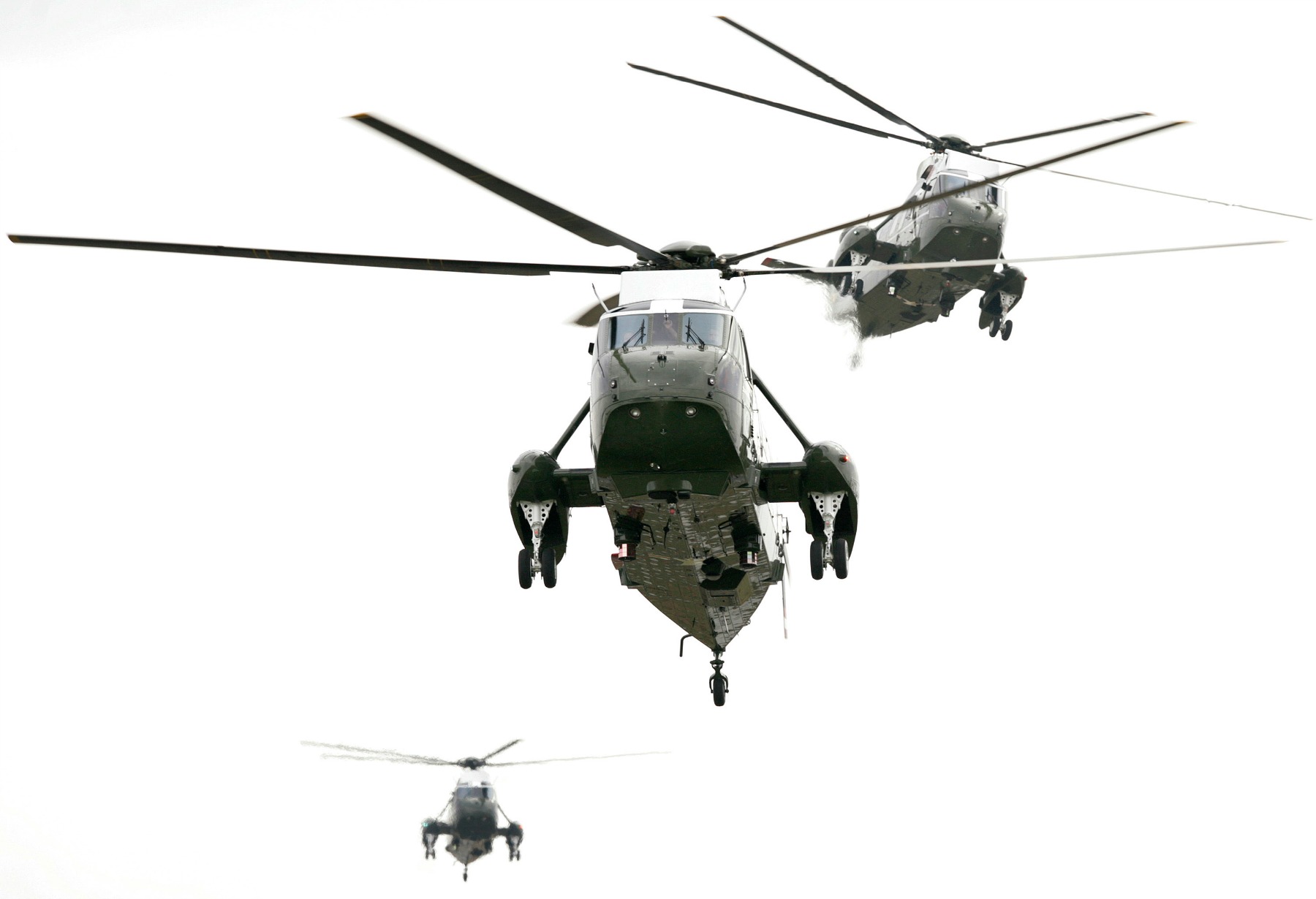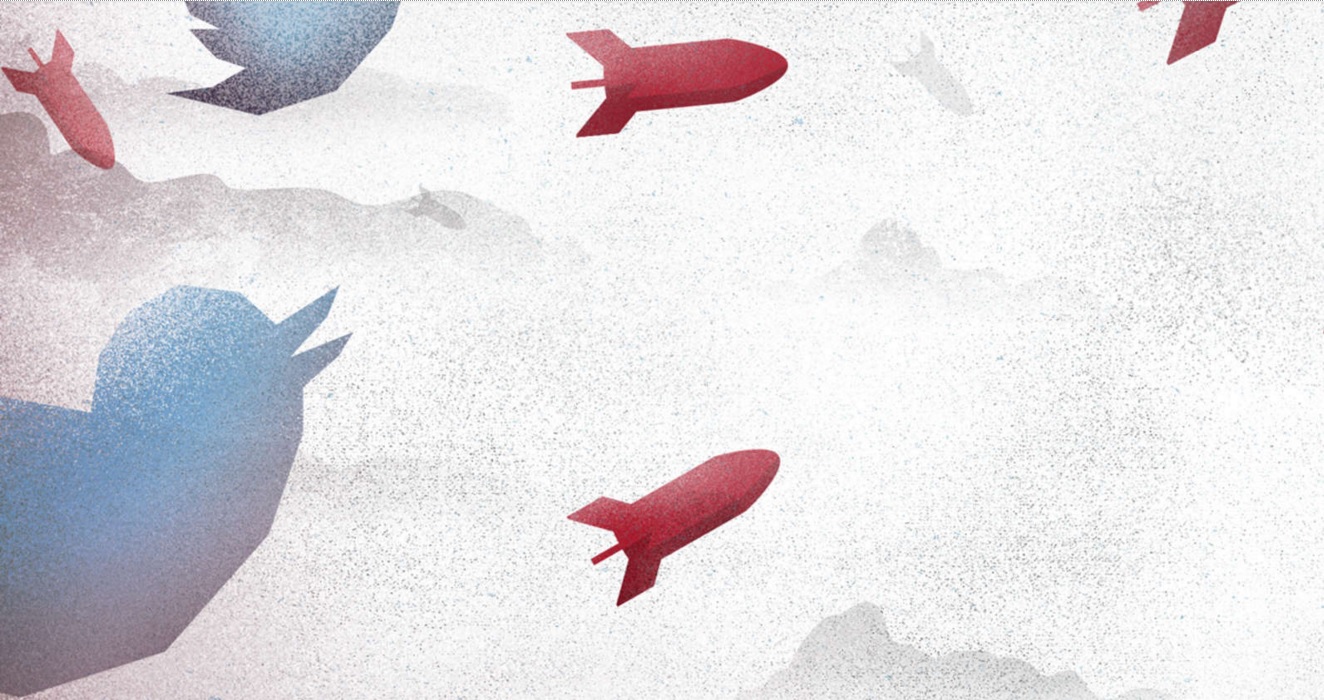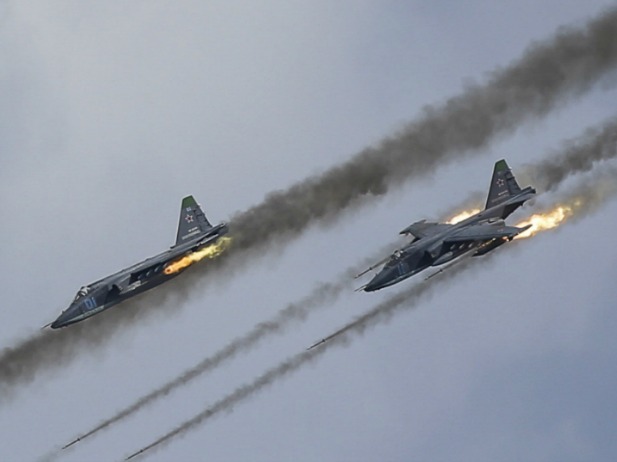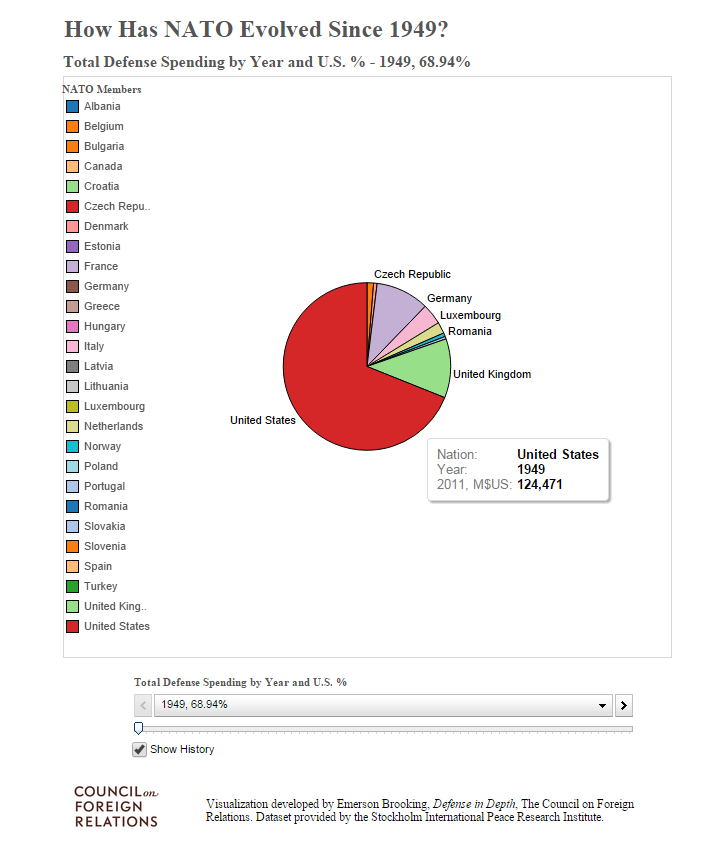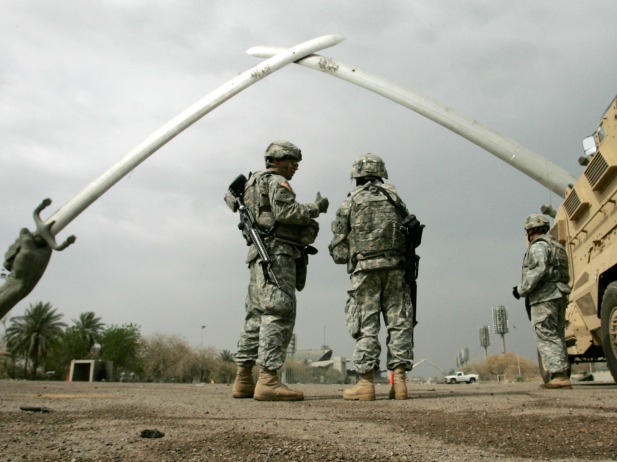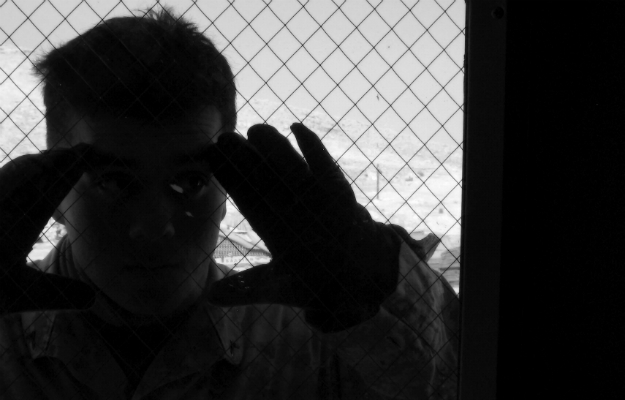Published Works
I write across a range of topics and disciplines, with special emphasis on defense and technology policy.
My coauthored book, LikeWar: The Weaponization of Social Media, was released in October 2018 via Houghton Mifflin Harcourt.
LikeWar tackles the mind-bending questions that arise when war goes online and the online world goes to war. It explores how ISIS copied the Instagram tactics of Taylor Swift, how a former World of Warcraft addict foiled war crimes thousands of miles away, and how China uses a smartphone app to the police the thoughts of 1.4 billion citizens. What can be kept secret in a world of networks? Does social media expose the truth or bury it? And what role do ordinary people now play in international conflicts?
LikeWar has received accolades from generals and admirals, Hollywood executives, and even the co-inventor of the internet. It was named to the New York Times “New and Notable” and proclaimed a Foreign Affairs book of the year. It has received rave reviews from the Washington Post, the Verge, Booklist, Kirkus, and a dozen other publications.
You can learn more about LikeWar here.
How a “Political Astroturfing” App Coordinates Pro-Israel Influence Operations
Analysis of "Act.IL," a smartphone app intended to crowdsource digital influence operations. This represents the future of information warfare. (DFRLab/Atlantic Council)
The Christchurch Call and the Failure of U.S. Leadership
The Christchurch Call represented a historic opportunity for international unity. By rebuffing it, the United States shows just how far it has retreated from the fight against terrorism and violent extremism. (New Atlanticist/Atlantic Council)
Christchurch-Style Terrorism Reaches American Shores
Digital forensic analysis of preparations made by the Poway, CA synagogue shooter. (DFRLab/Atlantic Council)
White Nationalism Overshadowed at Congressional Hearing on White Nationalism
Small exchange with partisan pundit dominates media coverage and online conversation about historic congressional hearing on white ethno-nationalist terrorism. With Melissa Hall. (DFRLab/Atlantic Council)
The Election Hackers Are Back – and They’re Starting with the US Midterms
In the final days before the 2018 U.S. Midterm Elections, social media platforms remain at serious risk of targeted viral misinformation. While Silicon Valley had taken some preparatory actions, the U.S. government has done essentially nothing. With P.W. Singer. (The Guardian)
The World Has Entered an Age of Conflict with Real World Results
The spread of viral misinformation has become a dangerous public health crisis, akin to the spread of contagions past. This crisis must be answered with a strong emphasis on information literacy. With P.W. Singer. (The Globe and Mail)
How October 7th, 2016 Shaped the Course of American History
Reflection of the two-year anniversary of the Access Hollywood scandal. Far from sinking the Trump political campaign, it showed how social media had thrown all the old rules of American politics out of the window. With P.W. Singer. (Rolling Stone)
The Machines That Will Fight the Social Media Wars of Tomorrow
Thanks to artificial intelligence, discerning "fact" and "fiction" on the internet is about to get a whole lot murkier. Which side will prevail? Excerpted from LikeWar. With P.W. Singer. (Gizmodo)
What Clausewitz Can Teach Us About War on Social Media
As the internet has transformed so much of human society, so it has transformed the ways and means of conflict. Perception matters as much as reality. Sufficient manipulation of that perception can achieve a war-like objective without firing a shot. With P.W. Singer. (Foreign Affairs)
Here’s China’s Massive Plan to Retool the Web
How China embraced the internet on its own terms, giving rise to a dangerous new form of cyber-authoritarianism in the process. Worse is yet to come. Excerpted from LikeWar. With P.W. Singer. (Popular Science)
Why Americans Aren’t Paying Attention to the Longest War in Their Nation’s History
Discussion of how the rise of social media has affected perceptions of the war in Afghanistan. Despite vastly improved access to information, the war has never been so far from sight. With P.W. Singer. (TIME)
The Little-Known Story of Donald Trump’s First Tweet
Donald J. Trump's journey from failing reality tv star to conservative icon to 45th U.S. president, all made possible by Twitter. Excerpted from LikeWar. With P.W. Singer. (TIME)
How the Kavanaugh Information War Mirrors Real Warzones
Examination of how online discourse surrounding Brett Kavanaugh Supreme Court confirmation hearings resembles that of far more serious information conflicts. With P.W. Singer. (WIRED)
The Very First Social Network
How a 1979 chain email about science fiction spawned the internet we know today. Excerpted from LikeWar. With P.W. Singer. (Slate)
Social Media Is Revolutionizing Warfare
Rare interview with Michael Flynn, examining his fall from grace and what it tells us about the internet more broadly. Excerpted from LikeWar. With P.W. Singer. (The Atlantic)
What Taylor Swift Teaches Us About Online War
How Taylor Swift's mastery of online authenticity explains (in part) the propaganda success of the Islamic State. Excerpted from LikeWar. With P.W. Singer. (Defense One)
The Future of War Will Be ‘Liked’
In the social media age, what you share is deciding what happens on the battlefield. With P.W. Singer. (Foreign Policy)
How Spencer Pratt Cast Himself as a Villain and We Bought It
Interview with Spencer Pratt, reality TV villain with keen insights into the relationship between social media, narrative, and reality. Excerpted from LikeWar. With P.W. Singer. (The Daily Beast)
Immigration Fight Shows Silicon Valley Must Stop Feigning Neutrality
Argument that the "neutrality" of the social media giants, always illusory, is now tipping the balance in favor of the Trump administration. With P.W. Singer. (WIRED)
Mending the Broken Dialogue: Military Advice and Presidential Decision-Making
Study examining the cultural and institutional drivers of civil-military friction, the doctrinal limitations of the military options formulation process, and the relationship between group friction and presidential decision-making. Proposes a series of reforms predicated on a close reading of 70 years of U.S. military history and interviews with former cabinet-level officials, COCOMs, and Joint Staff planners.
War Goes Viral
Social media has altered the nature of war. The viral propaganda of the self-declared Islamic State, Russian disinformation campaigns, and Chinese cyber-nationalism are all indications of a more fundamental shift in conflict—a revolution that threatens to catch U.S. policymakers and social media companies off guard. With P.W. Singer. (The Atlantic)
Terror on Twitter
Feature article detailing the online operations of the Islamic State and the diverse set of actors who seek to stop them. Also explores the nature of effective viral propaganda and the exploitation of communication platforms by terror groups through history. With P.W. Singer. (Popular Science)
Anonymous vs. the Islamic State
Feature investigation of the colorful coalition of hacktivists, many former members of Anonymous, who have pooled their resources to drive the Islamic State off the internet. (Foreign Policy)
Six Questions That Should Now Guide U.S. Defense Planning in Syria and Iraq
Consideration of complications for U.S. defense planning in Syria following commencement of Russian air strikes and expansion of Russian ground presence in the region. (Defense in Depth, Council on Foreign Relations)
When Should the 9/11 War End?
Reflection on the fourteenth anniversary of the attacks of September 11, 2001. Argues that the 2001 Authorization for Use of Military Force must be revisited and revised. (Defense in Depth, Council on Foreign Relations)
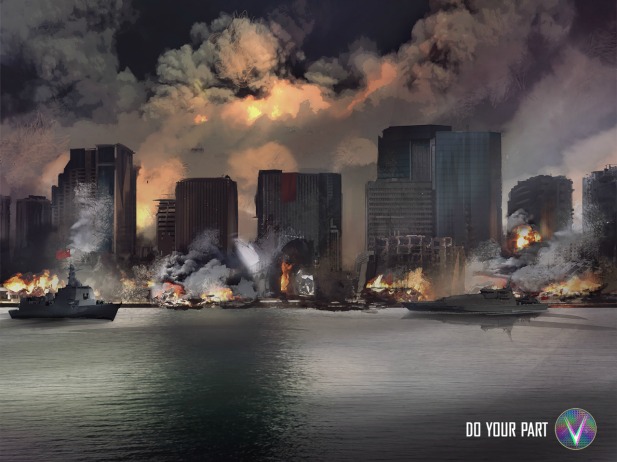
“Ghost Fleet:” A Vision of White-Knuckle Warfare in the Information Age
Review of "Ghost Fleet," a futuristic thriller by P.W. Singer and August Cole. (Defense in Depth, Council on Foreign Relations)
Contextualizing the OCO Debate
This interactive traces base and overseas contingency operations (OCO) spending from 2001-2016 (projected) in 2015 dollars. It compares this with "boots-on-the-ground" numbers and estimates from these years. Additionally, it charts OCO as a percentage of total defense spending. (Defense in Depth, Council on Foreign Relations)

How the Overseas Contingency Operations Fund Works—and Why Congress Wants to Make It Bigger
Analysis and discussion of the Overseas Contingency Operations (OCO) fund, the budgetary mechanism that has founded U.S. expeditionary operations since 2001. With Janine Davidson. (Defense in Depth, Council on Foreign Relations)
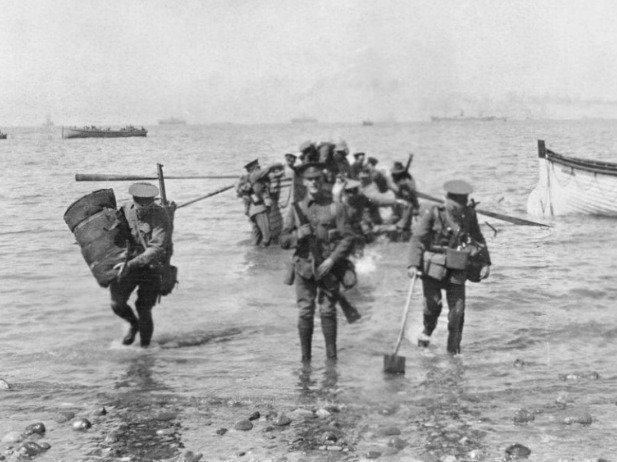
Bravery and Folly at Gallipoli, One-Hundred Years Ago
Discussion of World War I's Gallipoli campaign, the first significant amphibious operation in history and arguably the lowest point of the Entente's war effort. Assesses strategic, operational, and tactical failures on the part of British war planners. The only way to "win" at Gallipoli would have been to avoid attacking in the first place. (Defense in Depth, Council on Foreign Relations)

Afghan President Ashraf Ghani Is the Partner the United States Needs to Get the Job Done
Reflection on Afghan President Ashraf Ghani's recent trip to the United States. Offering robust U.S. support to Ghani will be making a positive investment in Afghanistan's future. With Janine Davidson. (Defense in Depth, Council on Foreign Relations)

The U.S. Government Should Pay Anonymous in Bitcoin to Fight ISIS
Given the Islamic State's strategically significant use of social media for recruiting and messaging, any comprehensive plan to defeat the terror network must also neutralize its online presence. Proposal for the creation of a bounty system that would pay hacktivists in anonymized Bitcoin to flag ISIS social media accounts and disrupt its websites. (ForeignPolicy.com)
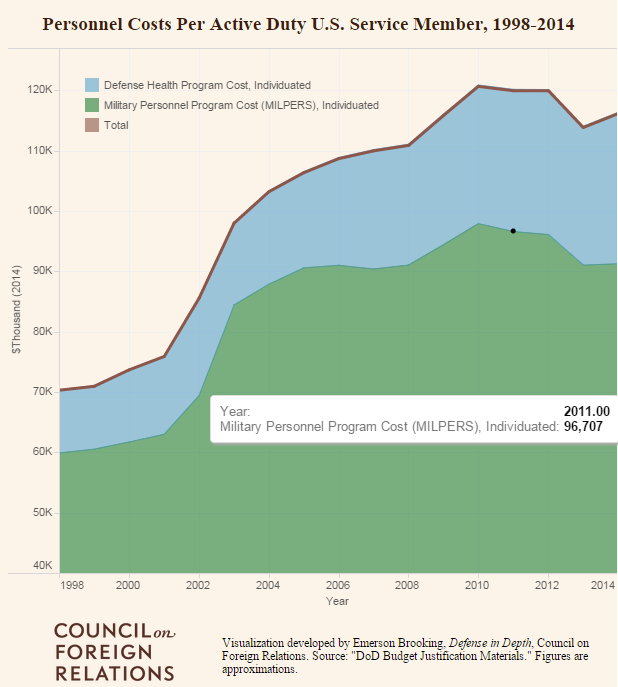
Everything You Need to Understand the Military Compensation Debate
Contextualization of military compensation debate by use of interactive visualizations. These graphics chart the category and percentage/dollar value of every military compensation outlay; funding by government department; the per-soldier cost of pay and health benefits from 1998 to 2014; and the growth of Defense Health and Veterans Affairs health-related budgets from 1998 to 2014. (Defense in Depth, Council on Foreign Relations)

Are the Chinese Failing To Equip Their Infantry?
Comparison of troop equipment spending patterns between the U.S. Army and China's People's Liberation Army. Current Chinese policy sees drastic underinvestment in force protection relative to other procurement categories. With Lauren Dickey. (Defense One)
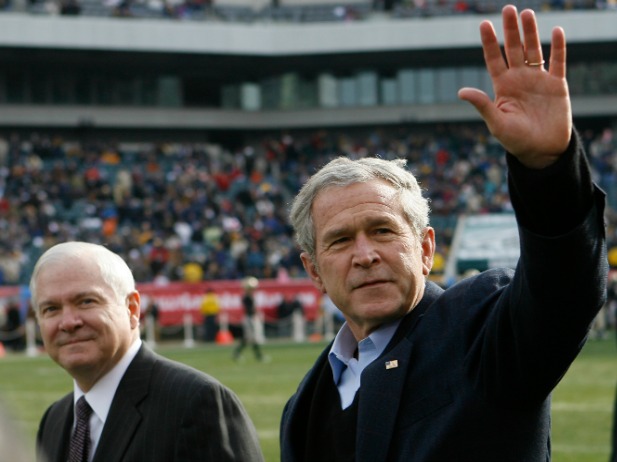
In Foreign Policy Debates Ahead, Look to Echoes of 2006
Reflection on the recent U.S. 2014 midterm elections. Looking ahead, President Obama may focus more on foreign policy initiatives in his last two years – just as President Bush after 2006. With Janine Davidson. (Defense One)

More Than 6,000 Afghan Interpreters Are Stuck in Bureaucratic Limbo
Assessment of the state of the special immigration program reserved for Afghan interpreters who have assisted American forces. Its renewal before December 31, 2014 is both a strategic and moral imperative. With Janine Davidson. (Defense One)
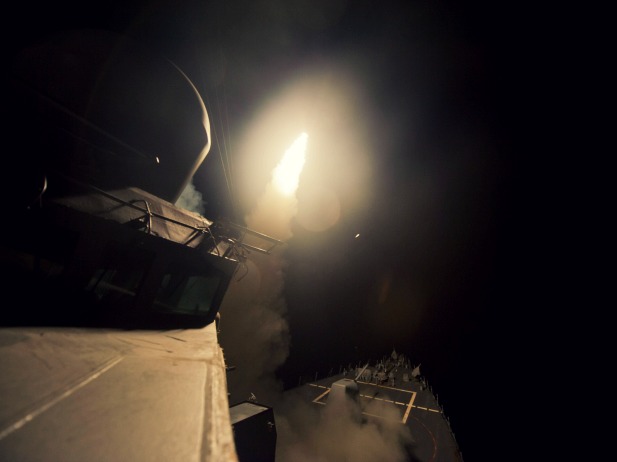
The Campaign Against ISIL Could Cost $1.5B a Month
Assessment of the ramifications of the anti-ISIS air campaign’s expansion into Syria. This effort the will be stymied without robust regional partnerships. With Janine Davidson. (Defense One)
How Has NATO Evolved Since 1949?
This graph traces, in constant U.S. 2011 dollars, the annual spending trends of each NATO alliance member from 1948 to 2013. This represents the most comprehensive timeline ever produced of NATO’s 65-year evolution. (Defense in Depth, Council on Foreign Relations)
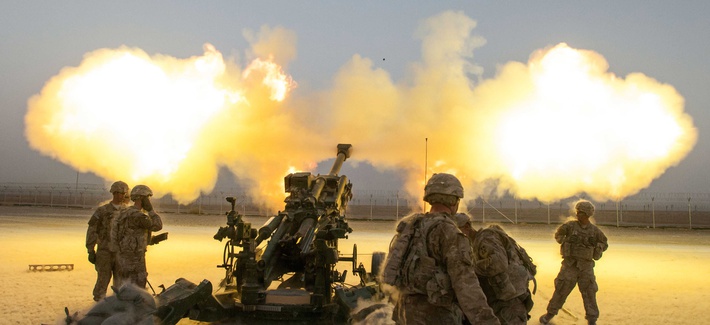
At the NATO Summit, Afghanistan Takes a Back Seat
On the eve of the 2014 NATO Wales Summit, the ongoing war in Afghanistan should not be relegated to a “side issue” in light of emerging crises. The next few months will be critical in ensuring that Afghanistan does not follow the path of Iraq. With Janine Davidson. (Defense One)

The ISIS Propaganda Machine is Horrifying and Effective. How Does It Work?
Examination of the employment and implications of Islamic State (IS) propaganda, conveyed largely via social media. IS has emerged as one of the most effective propagandists of the twenty-first century. (Defense in Depth, Council on Foreign Relations)
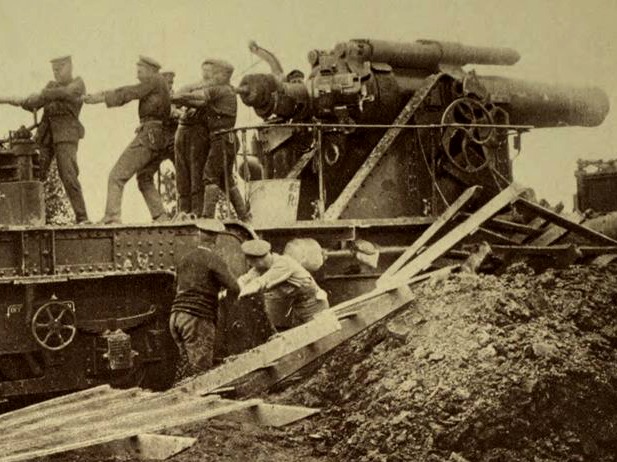
A Century Ago Today, the Age of Industrial Warfare Began
Reflection on August 7, 1914 and World War I’s Battle of the Frontiers. This battle marked the dawn of industrial warfare. It would take Western militaries many costly years to adapt. (Defense in Depth, Council on Foreign Relations)

ISIS Hasn’t Gone Anywhere—and It’s Getting Stronger
The argument articulated by many critics of the 2011 withdrawal from Iraq – that U.S. troops should have simply stayed “until the job was done” – does not represent a viable strategy. In fact, it represents the opposite. (Defense in Depth, Council on Foreign Relations)
In Iraq, What Exactly Was the Alternative?
The argument articulated by many critics of the 2011 withdrawal from Iraq – that U.S. troops should have simply stayed “until the job was done” – does not represent a viable strategy. In fact, it represents the opposite. (Defense in Depth, Council on Foreign Relations)

In Afghanistan, Path to Lasting Success Will Also Be the Hardest
Assessment of potential glideslopes for U.S. withdrawal from Afghanistan in wake of the April 5 presidential elections. The most effective plan will be phased and gradual – but this will likely be incompatible with American public opinion. With Janine Davidson. (Defense in Depth/Council on Foreign Relations)
The Heritage IS Hate!
“Heritage, not Hate!” the cries of protest go. There is a strong and enduring counternarrative that the flag is just that — a flag — easily divorced from its racist roots and screed. This argument is also bullshit. (Medium.com)
Outside the Drawdown and Looking In
Discussion of obstacles faced by current generation of officer-applicants. With sharply reduced defense spending and a surplus of qualified candidates, many will never have the opportunity to commission. (The Best Defense, ForeignPolicy.com)

What Now for America’s Young, Jobless Soldiers?
Assessment of the unprecedented employment challenges facing veterans of Afghanistan/Iraq II. Never has such a substantial force drawdown taken place in such a stagnant labor market. There is a looming jobs crisis for today’s young soldiers, and policymakers must address it before it gets worse. (The National Interest)

Roma Surrecta: Portrait of a Counterinsurgent Power, 216 BC – AD 72
Evaluation of the behavior and anti-revolt strategies of the Roman Empire in context of contemporary counterinsurgency theory. Roman history, economy, values system, force disposition, and acculturation practices are each considered in this light, supplemented by fourteen case studies.

Finding Efficiencies in the Business of Defense: Reducing Fuel Cost for the Defense Logistics Agency
Comprehensive review of DLA-Energy fuel procurement practices, from market engagement to governance structure to final product distribution. Analyzes previously proposed reforms and makes new recommendations based on consultation with petroleum industry leaders. (Business Executives for National Security)

Rods From God: The Truth of Call of Duty’s Killer Satellite
Military technology and analysis piece commissioned by Escapist Magazine. Explores the history, science, and continuing pop culture relevance of the “Rods from God” weapons platform. (The Escapist Magazine)
Neverwinter Nevermore
Retrospective piece commissioned by Escapist Magazine. Considers the niche success and lasting influence of Neverwinter Nights, a 2003 RPG published by BioWare Corporation. Also debates future of RPG genre within gaming industry. (The Escapist Magazine)

The Part-Time Generation: Debt and Unemployment Threaten College Graduates’ American Dream
Examination of unemployment, underemployment, shifting labor dynamics, and debt shouldered by Millennials in wake of the Great Recession. Many college graduates will never find skilled labor. (Fair Observer)
The Tea Party: How Long Will It Last?
Evaluation of the rapid rise and outsized political influence of the right-leaning Tea Party movement. Investigates and rebuts some of the gravest charges leveled against the nascent movement. Concludes that hyperpartisanship and ideological rigidity demanded by Tea Party faithful will ultimately further stymie the American policymaking process. (Fair Observer)
